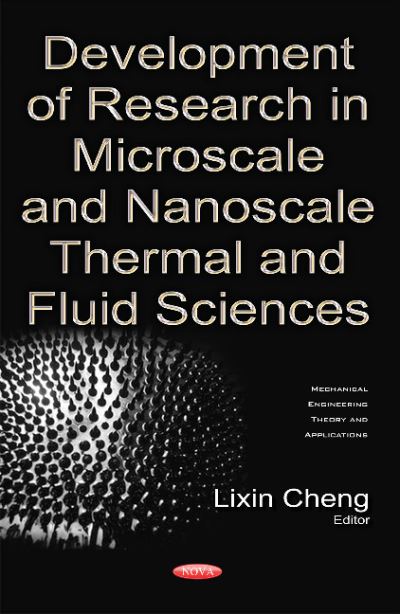
Applications of microscale and nanoscale thermal and fluid transport phenomena are involved in traditional industries and highly specialized fields such as bioengineering, chemical and biochemical engineering, micro-fabricated fluidic systems, microelectronics, aerospace technology, micro heat pipes, chips cooling etc. The research in the relevant subjects has been becoming especially important since the late 20th century. However, microscale and nanoscale thermal and fluid transport phenomena are quite different from those at conventional scale or macroscale. Research on the thermal and fluid transport phenomena at microscale and nanoscale has extensively been conducted to understand the very complex phenomena in the past decades. New instrumentational methods have been applied to measure the basic physical parameters at microscale and are continuously under development. New test data have been obtained through state-of-the art experimental facilities. New prediction methods and mathematical models have also been developed to cover both macroscale and microscale channels and are being continuously under investigation. However, there are quite contradictory results in the available research. Furthermore, new theories and mechanisms are also urgently needed for the fluid flow and heat transfer phenomena at microscale and nanoscale. There are many issues to be clarified from both theoretical and applied aspects. In recent years, interdisciplinary research areas are also rapidly under development. For example, as a new research frontier of nanotechnology, the research of nanofluid two-phase flow and thermal physics is rapidly growing. However, it has also posed new challenges as there are quite contradictory results in the available research. There are still a number of issues needed to be solved in the practical applications.
| ISBN: | 9781634854627 |
| Publication date: | 1st September 2016 |
| Author: | Lixin Cheng |
| Publisher: | Nova Science Publishers an imprint of Nova Science Publishers, Inc |
| Format: | Hardback |
| Pagination: | 305 pages |
| Series: | Mechanical Engineering Theory and Applications |